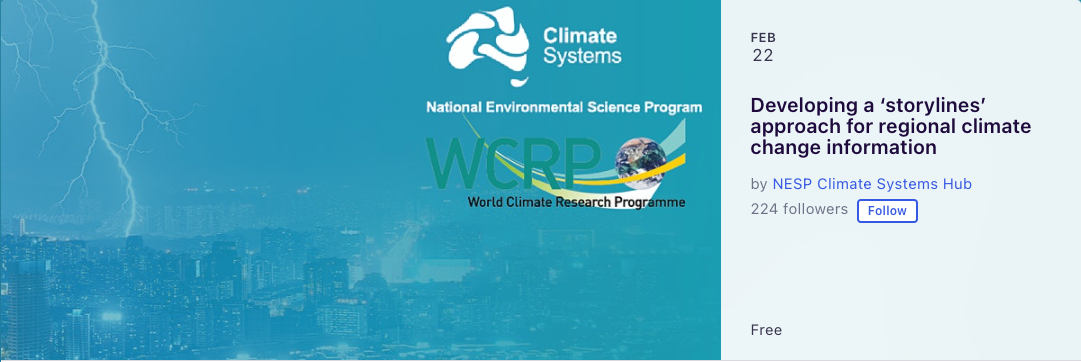
About this event
Video recording: https://www.youtube.com/embed/rTB7h1W-qx8&t=61s
Climate change ‘storylines’ are now being recognised as a practical approach to producing actionable climate information – being used in key parts of the IPCC Sixth Assessment Report and in many applications around the world. The term 'storyline' is used to describe a physically self-consistent unfolding of past events and plausible future events or pathways, with the emphasis on the driving factors involved. The approach means moving away from probabilistic representations based on ensembles of models, and towards a framework that is event-oriented and physically-based. The framework has great promise in improving risk awareness, linking better to decision-making, providing a basis to explore the boundaries of possibilities and linking physical with human aspects of climate change.
While the 'storylines' approach fits into the broader topics of scenario-generation, ‘bottom-up’ analysis and community consultation, the main focus of the seminar will be on developing storylines of physical climate change.
Professor Ted Shepherd (University of Reading) will give the keynote. Professor Shepherd is renowned for his contributions in atmospheric fluid dynamics, and is a global leader in developing the storylines approach to climate change projections.
This event is held in partnership with the ‘My Climate Risk’ lighthouse activity of the World Climate Research Programme.
(This information was copied from the associated Eventbrite page)
The Climate Systems Hub is one of four research hubs supported by funding through phase 2 of the Australian Government’s National Environmental Science Program. A partnership of Australia’s leading climate and Earth systems research institutions (CSIRO, Bureau of Meteorology, University of New South Wales, Australian National University, Monash University, University of Melbourne, University of Tasmania and State Government departments), our role is to ensure that Australia’s decision-making and adaptation solutions are effectively informed by evidence-based climate research.


